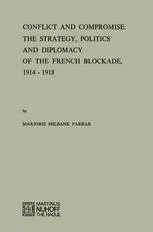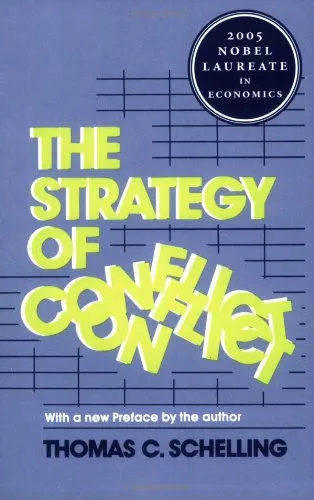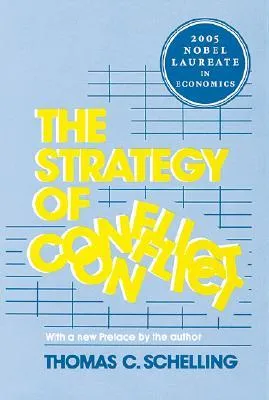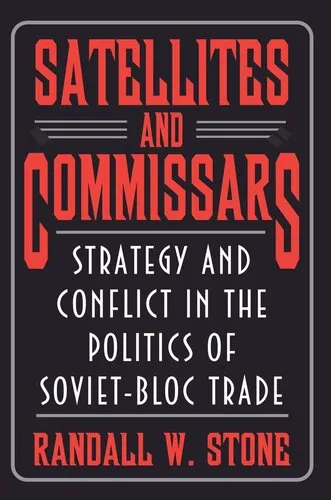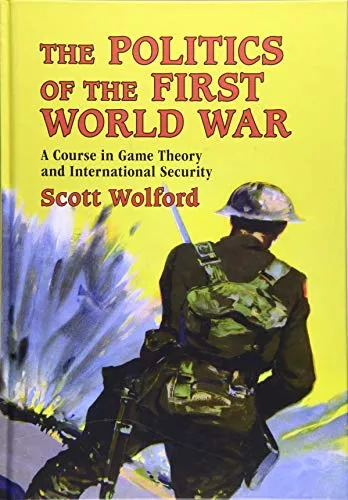Conflict and Compromise: The Strategy, Politics and Diplomacy of the French Blockade, 1914–1918
4.7
Reviews from our users

You Can Ask your questions from this book's AI after Login
Each download or ask from book AI costs 2 points. To earn more free points, please visit the Points Guide Page and complete some valuable actions.Related Refrences:
Introduction to 'Conflict and Compromise: The Strategy, Politics and Diplomacy of the French Blockade, 1914–1918'
"Conflict and Compromise: The Strategy, Politics and Diplomacy of the French Blockade, 1914–1918" is an in-depth examination of the vital yet understudied role of the French blockade during World War I. This book delves into the multifaceted approaches undertaken by France to weaken and isolate Germany through naval strategies, economic pressures, and diplomatic maneuvers. Going beyond a mere narrative of events, this work highlights the intricate dance of conflict and compromise that defined French maritime policy between 1914 and 1918.
Detailed Summary of the Book
At the core of "Conflict and Compromise" is an analysis of the strategic intentions behind the French blockade, which was designed not only to restrict supplies to Germany but also to maintain alliances with other nations such as Britain and the United States. The blockade was a multifaceted tool that interwove military strategy with economic warfare and diplomatic negotiation. Through a thorough investigation of archival materials, governmental correspondences, and firsthand accounts, the book uncovers the strategies employed by French naval forces and the layers of political negotiations that shaped blockade policies.
The narrative begins by setting the geopolitical context that necessitated the French blockade, highlighting the challenges faced by a nation striving to balance offensive measures with the need to keep powerful allies on their side. As the blockade progressed, varied compromises emerged, uncovering the delicate balance between aggression to achieve military goals and the diplomacy required to avoid alienating neutral countries. The book meticulously documents how these strategies were implemented, adjusted, and at times, undermined by internal and external pressures.
Key Takeaways
- The blockade was not merely a military strategy but an economic and political tool crucial for war efforts.
- The importance of alliance management and diplomatic negotiations in wartime policies was paramount.
- The French blockade efforts were driven by both military necessity and the need for international political support.
- Compromise was often necessary to maintain the equilibrium between French goals and the interests of their allies.
Famous Quotes from the Book
"The blockade served as both sword and shield, wielding economic warfare against the enemy while shielding Franco-British diplomatic relations."
"In the interplay of conflict and diplomacy, the blockade stood as a testament to France's strategic astuteness and political acumen."
Why This Book Matters
"Conflict and Compromise: The Strategy, Politics and Diplomacy of the French Blockade, 1914–1918" fills a significant gap in the historical understanding of World War I. While the war is often discussed in terms of land battles and political treaties, the French blockade's role in shaping the war's outcome has not been sufficiently acknowledged. This book offers a critical lens on how economic policies and maritime strategies influenced global diplomacy and wartime alliances. Scholars, historians, and enthusiasts will find value in its detailed analysis of the interconnectedness of war strategy, diplomacy, and international relations.
The work is not just a historical account but offers timeless insights into the nature of international politics and conflict resolution. The lessons drawn from France's handling of its blockade resonate with contemporary geopolitical tensions, where similar strategies of pressure and negotiation are at play.
Free Direct Download
You Can Download this book after Login
Accessing books through legal platforms and public libraries not only supports the rights of authors and publishers but also contributes to the sustainability of reading culture. Before downloading, please take a moment to consider these options.
Find this book on other platforms:
WorldCat helps you find books in libraries worldwide.
See ratings, reviews, and discussions on Goodreads.
Find and buy rare or used books on AbeBooks.
1331
بازدید4.7
امتیاز0
نظر98%
رضایتReviews:
4.7
Based on 0 users review
Questions & Answers
Ask questions about this book or help others by answering
No questions yet. Be the first to ask!
